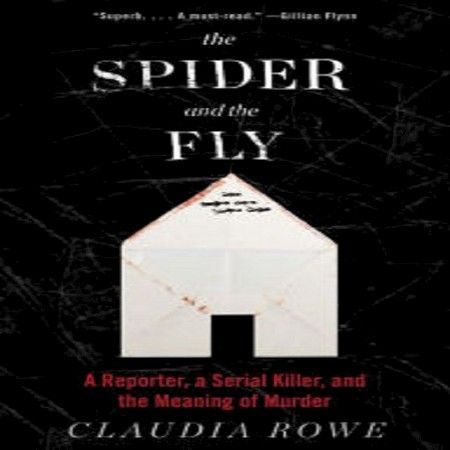Claudia Rowe The Spider And The Fly

Download and listen anywhere
Download your favorite episodes and enjoy them, wherever you are! Sign up or log in now to access offline listening.
Description
Our cultural fascination with crime, demonstrated with the runaway success of “Making a Murderer,” “The Jinx” and “Serial” is rooted in questions about humanity itself. THE SPIDER AND THE FLY:...
show moreIn September 1998, Rowe was a young reporter working as a stringer for the New York Times in Poughkeepsie, New York when local police, confounded by two years of missing-women reports, discovered eight decayed bodies stashed in the home where Kendall Francois lived with his mother, father and teenage sister. The corpses were found only after Kendall, a painfully polite twenty-seven-year-old, confessed while being booked for something far more routine. He fit few traditional descriptions of a serial murderer, and many in Poughkeepsie struggled to comprehend how this “gentle giant” could be responsible for such brutality.
Growing up amid the bourgeois affluence of New York City, Rowe had long maintained a curiosity about danger, and she often lived a secret life on the edge. Journalism had initially provided a safe vantage point. But when Rowe learned about Kendall, she abandoned all caution, consumed with trying to understand what kind of man could strangle eight women and hoard their bodies—not to mention how a family could live for two years surrounded by corpses and seemingly unaware. Reaching out after Kendall’s arrest, Rowe began an intense four-year conversation with the killer through letters, phone calls and face-to-face meetings.
The Francois case never went to trial, and as Rowe sought to understand the killer, she also discovered troubling truths about underlying social realities that had allowed Kendall’s crimes to go unnoticed for years. Diving deep into the mind of evil, she dissects the roles that class, race, compassion and cruelty played, asking: Can a murderer maintain any humanity in the wake of such monstrous evil? And if so, is it possible to reach such a person? Through deep reporting with law enforcement, victims’ family members, and friends from Kendall’s past, Rowe reveals a town steeped in denial, while coming to terms with her own ghosts and the path toward a future.
Beautifully written, THE SPIDER AND THE FLY presents readers with a captivating true crime story filled with gripping suspense, tremendous heartache and hard lessons learned. This book is one that readers will never forget.
Investigators had theorized that the person responsible for Poughkeepsie’s missing women was a white man, the rogue air force officer down by the river or a charming suburbanite—the serial-killer stereotype—not Kendall, whom they routinely busted for beating up hookers, saw afterward wolfing down hamburgers, and laughingly referred to as “Fat Albert.” Kendall had been a shambling oaf to the cops, a nothing…. Later, when they knew better, officers would attribute their mistake to a chilling mental divide in the man. They would speak of him as evil, and of evil as a force that operated like a machine, immune to confusion or shame. He was a freak, they said, an aberration. It allowed them to shake off his story as one might a baffling dream.
ABOUT THE AUTHOR: Claudia Rowe is a staff writer at The Seattle Times and has twice been nominated for the Pulitzer Prize. Her work has been published in numerous outlets, including The New York Times, Mother Jones, Huffington Post, Women’s Day, and Seattle's alternative weekly, The Stranger. She has been honored by the Society of Professional Journalists, the Nieman Foundation for Journalism at Harvard University, and was awarded the Casey Medal for Meritorious Journalism. She lives in Seattle, Washington.
Information
| Author | Arroe Collins |
| Organization | Arroe Collins |
| Website | - |
| Tags |
Copyright 2024 - Spreaker Inc. an iHeartMedia Company

Comments